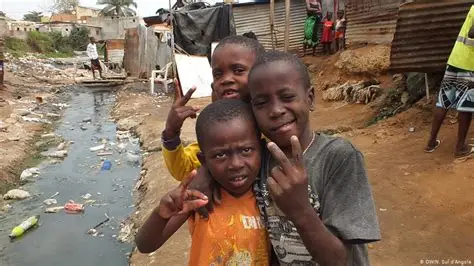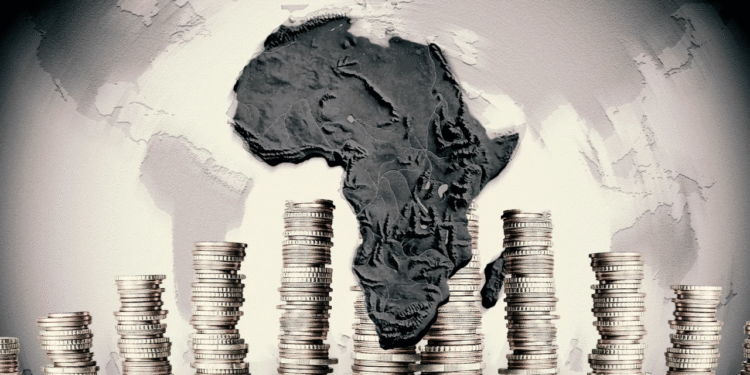Africa is often described in glowing terms: a continent of vast potential, the land of opportunities, the future of global growth. Such phrases, though hopeful, also reveal a troubling truth. Africa is still largely spoken about in terms of what it could become, not what it is. This narrative exists because Africa is enormously rich in natural resources. From north to south, and east to west, the continent is endowed with oil, gas, gold, diamonds, cobalt, coltan, fertile agricultural land, and a youthful population that is its greatest asset.
Yet, despite this abundance, Africa has historically struggled to translate its resources into prosperity for its people. Instead, its wealth has too often been the very reason for its exploitation.

A History of Unequal Exchange
From the earliest interactions with foreign traders, Africa’s economic relationships have been skewed. In precolonial times, European merchants came for ivory, gold, and slaves, offering manufactured goods and weapons in return. The infamous transatlantic slave trade stripped the continent of millions of its most productive men and women, crippling its social fabric while enriching European economies.
Colonialism only deepened this pattern. Africa became the source of raw materials: rubber from Congo, cocoa from Ghana, groundnuts from Senegal, cotton from Sudan, while Europe became the producer of finished goods. The structure was clear: Africa supplied, Europe profited.
This unequal system of exchange did not end with independence. Instead, it morphed into new forms under globalization.
The Persistence of Exploitation
Today, the story is eerily similar. Africa still exports crude oil but imports refined petroleum at higher prices. It grows cocoa beans but imports expensive chocolate. It mines cobalt; indispensable for smartphones and electric vehicles, but foreign companies dominate extraction and profit, leaving local communities impoverished.
This pattern of exploitation is not only economic but also diplomatic. Recently, African leaders were literally summoned to Japan for a summit. A trend that has become disturbingly common. If it is not the king of Saudi Arabia, then it is another world power calling African presidents and prime ministers as if they were schoolchildren, with the inviting leader cast in the role of master. At the Japan summit, about 5.5 billions dollars were pledged, which, when divided among the participating African nations, amounted to only a little over a hundred million per country. Such meetings are rarely acts of generosity. No nation simply gives away money without expecting returns. These summits often serve as platforms for stronger powers to secure access to African resources at cheaper rates, while presenting it as “aid” or “partnership.”
Take Nigeria, Africa’s largest oil producer. Despite decades of exporting crude, it lacks sufficient refineries, meaning it imports fuel at inflated costs. Or consider the Democratic Republic of Congo, which produces more than 70% of the world’s cobalt. Multinational companies reap billions, while Congolese miners often work in dangerous conditions for meager pay. Ghana and Côte d’Ivoire, which together produce over 60% of the world’s cocoa, receive only a fraction of the chocolate industry’s USD100 billion global revenue.
The pattern is consistent: Africa provides the raw materials; others capture the value.

Why This Must Change
This imbalance is more than just an economic inconvenience, it is a scourge. Like an untreated illness, it eats away at Africa’s ability to grow, develop, and assert independence. By remaining a supplier of raw goods and an importer of finished products, Africa locks itself into dependency. Its economies remain vulnerable to global price fluctuations, political interference, and external shocks.
If Africa continues down this path, the so-called “continent of opportunity” will remain just that, potential without realization.
A Path Forward
The cure to this ailment lies in bold, radical change. Africa must shift from being resource-rich but value-poor to being both resourceful and value-creating. This means:
- Industrialization.: Building industries that process raw materials locally. Refineries, smelters, and manufacturing plants must be prioritized. Africa should export not just cocoa beans but chocolate, not just crude oil but refined products.
- Regional Integration :The African Continental Free Trade Area (AfCFTA) presents an opportunity to break dependency on external markets by strengthening intra-African trade. A united market of 1.4 billion people is powerful leverage.
- Strategic Trade Policies: Governments must negotiate trade deals that protect African interests, curb exploitative practices, and ensure fair pricing for commodities.
- Investment in Human Capital : Beyond natural resources, Africa’s greatest wealth is its people. Education, innovation, and entrepreneurship must be cultivated to ensure that the next generation builds industries that compete globally.
- Accountable Leadership: Corruption and mismanagement have worsened Africa’s plight. Leaders must prioritize long-term development over personal enrichment.
Conclusion
Africa cannot afford to remain the world’s quarry and farm. Its wealth must work for Africans, not against them. To describe the current situation as a scourge is not exaggeration. it is a recognition of a deep-rooted imbalance that has persisted for centuries. But like every ailment, it has a cure.
If Africa takes decisive steps to harness its resources, invest in its people, and renegotiate its place in the global economy, the conversation will finally shift. The world will no longer speak of Africa in terms of potential alone, but as a continent that has realized its promise and claimed its rightful place at the center of global prosperity.








